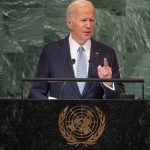RFA cited a report by a media agency that revealed that 17 products, mainly store-brand items from British and German retailers, are likely made with Chinese tomatoes…reports Asian Lite News
The Parliament is considering potential actions against Beijing after an investigative report revealed that many tomato purees labelled as “Italian” in British supermarkets are frequently produced using forced labour from Uyghur workers in China Radio Free Asia reported.
RFA cited a report by a media agency that revealed that 17 products, mainly store-brand items from British and German retailers, are likely made with Chinese tomatoes. Some of these products, like Tesco’s Italian Tomato Puree, feature “Italian” in their name, while others include it in their product description.
Sarah Champion, a Labour Party MP and member of the Inter-Parliamentary Alliance on China, said during a House of Commons session on Monday, that the investigation has “justifiably shocked the British public.”
She stated that tomato products sold in UK supermarkets, which were labelled as Italian-made or produced in Italy, were connected to forced labour in the Xinjiang Uyghur Autonomous Region of China.
The news followed shortly after Tadashi Yanai, president and CEO of Japan’s Fast Retailing, the parent company of Uniqlo, stated that his company does not source cotton from Xinjiang.
Companies worldwide are facing increased scrutiny to verify that their supply chains do not involve products made with Uyghur forced labour. In response to the report, China quickly denounced it, claiming, “This essentially equates Xinjiang with ‘forced labor,’ which is a clear attempt to tarnish China’s image,” in an editorial in the state-run Global Times.
The editorial further stated, “The BBC’s latest ‘fabricated story’ is rather unconvincing,” adding, “In Xinjiang, both cotton and tomatoes are mostly harvested using mechanized methods, replacing manual labour from planting to picking.”
Unlike the United States, which has laws prohibiting imports from Xinjiang based on the assumption they are produced with forced labour, UK companies are permitted to self-regulate and ensure that such labour is not involved in their supply chains.
Champion criticized the UK’s “weak and confusing product labelling regulation,” arguing that it allows for “linguistic manipulation” that likely aims to mislead consumers.
Addressing Douglas Alexander, the UK Minister for Trade Policy and Economic Security, she asked, “How much more evidence is needed to show that we need stronger labelling standards to provide consumers with clearer information about the sourcing countries of pre-packed products?” She emphasized that in the Uyghur region, severe human rights violations are happening daily, driven by a state-enforced system of forced labour, with an estimated 7,00,000 people being forced to work in tomato production.
Conservative MP Iain Duncan Smith, co-chair of the Inter-Parliamentary Alliance on China, argued that the UK’s 2015 Modern Slavery Act, which aims to address modern slavery in supply chains, needs reform.
He pointed out, “At present, we are importing massive quantities of polysilicon arrays from Xinjiang, and nothing is being done about it.” He added, “This issue goes beyond Xinjiang; there are also a quarter of a million Tibetans subjected to forced labor.”
As per the media report, that it interviewed 14 individuals who either experienced or witnessed forced labour in Xinjiang’s tomato fields over the past 16 years. One person recounted that workers who failed to meet their daily tomato quotas for export were subjected to electric shocks. The news outlet also investigated shipping data, revealing that most Xinjiang tomatoes are transported by train through Kazakhstan, Azerbaijan, and Georgia before reaching Italy.
In June, human rights lawyers, representing Uyghur advocacy groups, filed both domestic and international complaints, claiming that several containers of tomato paste shipped by rail from Xinjiang to Italy two months earlier were produced with Uyghur forced labour. (ANI)
ALSO READ: Saltmarsh being restored in Devon














